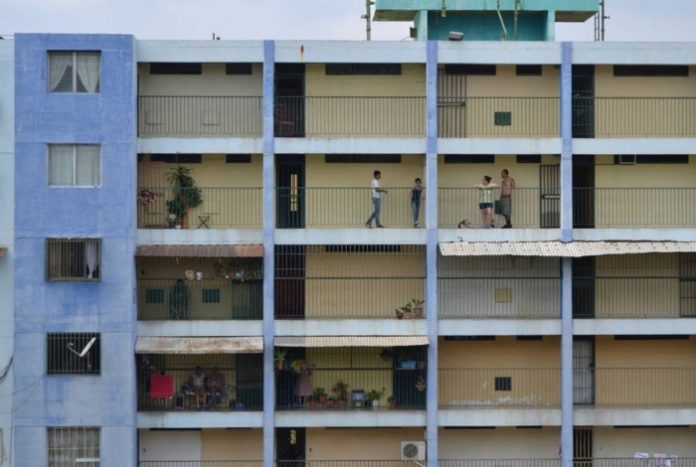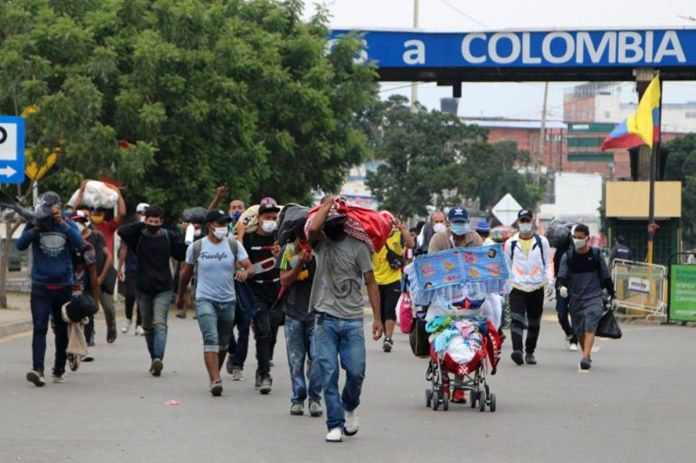It is easy to understand that we don’t always want long or complex answers to the challenges we face, including Venezuela’s problems. To a large extent, people consume easy, short, and epic messages that confirm what they already sensed before reading them. In fact, many media outlets have dedicated themselves to cultivating the “sensationalism” of the message and not necessarily its content. It is more common to see people who share a biased or ad hominem opinion, filled with emotions and relying on conspiracy theories than having someone trying to explain and break down complex phenomena. Disinformation has taken over politics and also sets the tone for many social interactions.
In today’s Venezuela, we could fall into the temptation to reject reflection, the debate of ideas, self-criticism, and the historical analysis of the conflict because we live in times of humanitarian emergency and a pandemic, among other reasons. Why would we have to debate ideas or argue if everything is crystal clear? The only person responsible for our ills is Hugo Chávez and the movement he created. The United States already affirms what we seem to have always known: those currently in power in Venezuela are drug traffickers and terrorists. There is nothing else to discuss, right? Yes and no.
Right, Chavismo delivered the final blow to the already beaten democratic institutions, destroyed the economy, created more pain and resentment, distorted our history, normalized violence, separated families, caused an exodus never seen before in the region, and led the country towards a complex humanitarian emergency. I could go on listing systemic deficits, as the destruction is almost infinite.
However, for some time now, a reductionist narrative of our history and conflict has prevailed. Authoritarian populism seems to have found fertile ground and polarization seems out of control. In other words, a part of the political leaders, influencers, or analysts proposes a binary reading of the complex Venezuelan reality. Phrases such as “the fight of good against evil”, “them vs us”, “the only problem in Venezuela is communism”, “anyone opposing Juan Guaidó is a collaborator”, are common on social media, conferences, or conversations in Venezuela. The reproduction of these binary ideas has an important reach, as our society is in pain and exhausted. In the short term, it may be more attractive to find refuge in these messages to ease the pain we are experiencing. Without a doubt, “buying” into these narratives in a country signed by tragedy can be more tolerable than investigating, inquiring, or questioning. This absolutist division of society into two equal poles is exclusive and, therefore, hinders the possibilities of plural understanding. Cornering, stigmatizing, or persecuting someone under the moral imperative of fighting “evil” is not only undemocratic but very dangerous. Universal history confirms it.
We are going through times of pandemic, with a virus that makes no distinction between “the rich and the poor”, “liberals and conservatives”, “migrants and nationals”, or, in our case, “Chavistas and opposition”. The rapid expansion of covid-19 has shown that, in one way or another, all of us benefit from or suffer the consequences of a globalized world. We live in an interconnected world. And while several (ultra) conservative movements insist on strengthening borders, the coronavirus has crossed them all. We are equal in our vulnerability and therefore, today more than ever, we must confront it by strengthening cooperation.
By simplifying our complex reality, we all lose. Reductionist and populist interpretations are undoubtedly seductive, but they do not allow us to go beyond the problem they describe. In this way, they can lead to stagnation, gaps, and generate even more hatred. Thinking in terms of “all or nothing” can render understanding impossible. By not insisting – from this moment on – on plural and respectful deliberation, we could be delaying the return of democracy to our country. Dissenting is not a sin, demanding transparency in political discourse and actions is not either. These are two basic conditions, among many others, for the functioning of a democratic system.
Leadership and citizenship are on trial. I believe that we must resist the temptation of simplistic and exclusive thinking, however difficult it may be. We have suffered for more than two decades the consequences of authoritarian populism, and, with it, the division of our society. In Juan Guaidó’s call to form a national emergency government, a small window opens for unity. Let us insist on it and thus differentiate ourselves from the authoritarian project that we deeply reject.
Translated by José Rafael Medina



